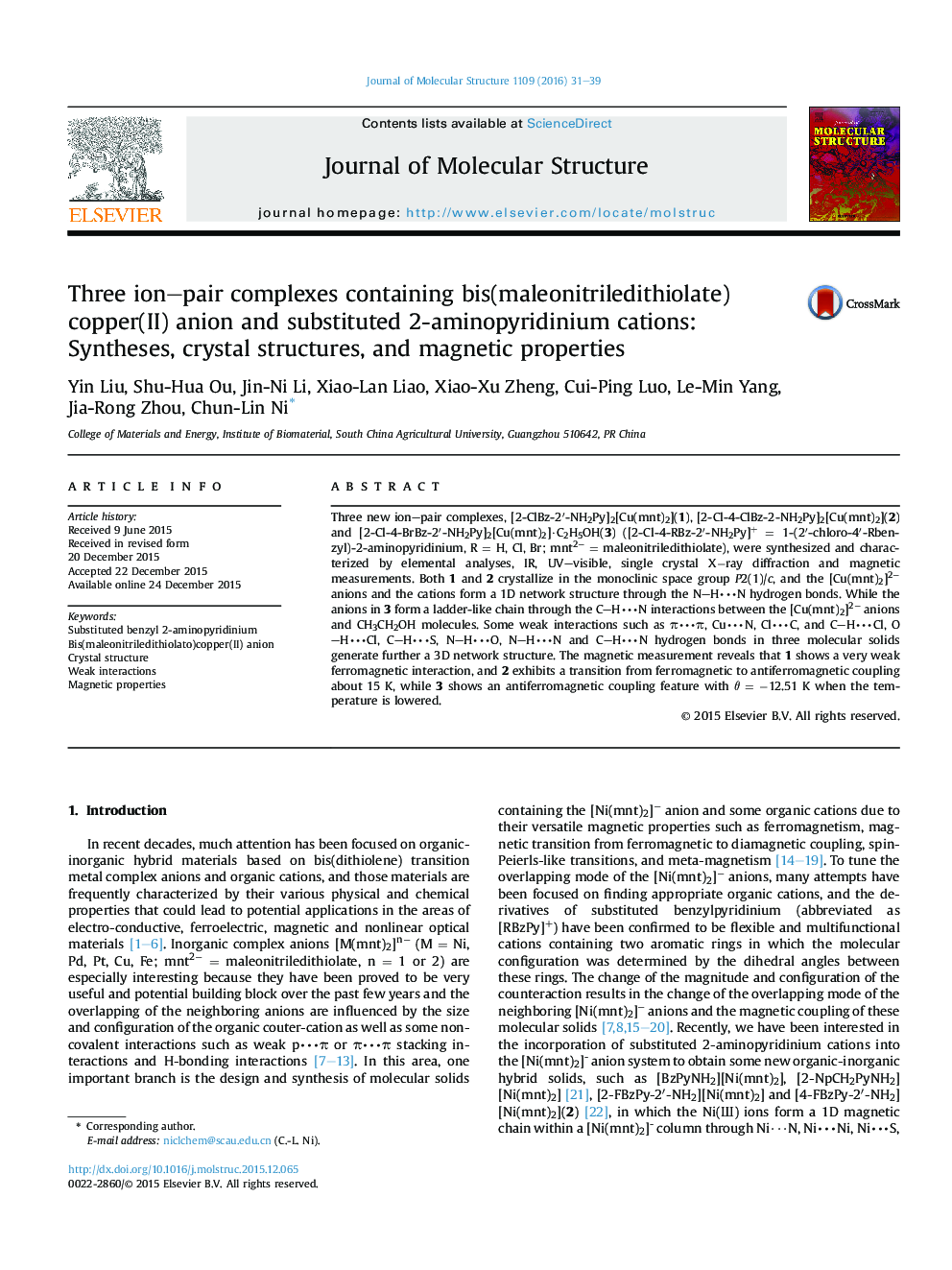| کد مقاله | کد نشریه | سال انتشار | مقاله انگلیسی | نسخه تمام متن |
|---|---|---|---|---|
| 1408980 | 1501708 | 2016 | 9 صفحه PDF | دانلود رایگان |

• Three new [Cu(mnt)2]2- complexes were prepared and characterized.
• The [Cu(mnt)2]2- anions in 1 and 2 form a 1D network structure by N–H⋅⋅⋅N hydrogen bonds.
• The [Cu(mnt)2]2- anions in 3 form a step-like structure by C–H⋅⋅⋅N hydrogen bonds.
• Complexes 1 and 2 show a ferromagnetic interaction, while 3 exhibits an antiferromagnetic behavior.
Three new ion–pair complexes, [2-ClBz-2′-NH2Py]2[Cu(mnt)2](1), [2-Cl-4-ClBz-2-NH2Py]2[Cu(mnt)2](2) and [2-Cl-4-BrBz-2′-NH2Py]2[Cu(mnt)2]·C2H5OH(3) ([2-Cl-4-RBz-2′-NH2Py]+ = 1-(2′-chloro-4′-Rbenzyl)-2-aminopyridinium, R = H, Cl, Br; mnt2− = maleonitriledithiolate), were synthesized and characterized by elemental analyses, IR, UV–visible, single crystal X−ray diffraction and magnetic measurements. Both 1 and 2 crystallize in the monoclinic space group P2(1)/c, and the [Cu(mnt)2]2− anions and the cations form a 1D network structure through the N–H⋅⋅⋅N hydrogen bonds. While the anions in 3 form a ladder-like chain through the C–H⋅⋅⋅N interactions between the [Cu(mnt)2]2− anions and CH3CH2OH molecules. Some weak interactions such as π⋅⋅⋅π, Cu⋅⋅⋅N, Cl⋅⋅⋅C, and C–H⋅⋅⋅Cl, O–H⋅⋅⋅Cl, C–H⋅⋅⋅S, N–H⋅⋅⋅O, N–H⋅⋅⋅N and C–H⋅⋅⋅N hydrogen bonds in three molecular solids generate further a 3D network structure. The magnetic measurement reveals that 1 shows a very weak ferromagnetic interaction, and 2 exhibits a transition from ferromagnetic to antiferromagnetic coupling about 15 K, while 3 shows an antiferromagnetic coupling feature with θ = −12.51 K when the temperature is lowered.
Figure optionsDownload as PowerPoint slide
Journal: Journal of Molecular Structure - Volume 1109, 5 April 2016, Pages 31–39